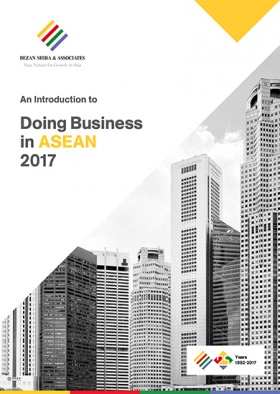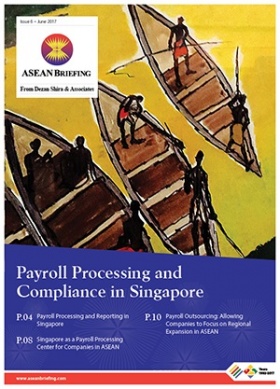Singapore’s Inward Re-Domiciliation Regime: What You Need to Know
One of the key amendments to the Singapore Companies Act, the inward re-domiciliation regime came into effect on October 11, 2017. The amendment allows foreign companies to relocate their business headquarters to Singapore instead of setting up subsidiaries, without losing their corporate history or brand identity. This means that a foreign company located outside of Singapore may become a registered Singapore private company limited by shares, domiciled in Singapore and continue its operations under the laws of Singapore; the company need not wind up its business activities and set up a new company in Singapore. Re-domiciliation in Singapore does not create a new legal entity. It also does not affect the property, rights or obligations of the foreign company, or affect any legal proceedings by or against the foreign company.
Procedure and requirements for re-domiciliation to Singapore
The procedure for transfer of registration of a foreign company to Singapore is similar to the setting up of a subsidiary in Singapore.
Prior to registration foreign companies must ensure that they meet certain prescribed requirements. For instance, re-domiciliation to Singapore requires small companies to be of a certain minimum size.To satisfy the minimum size requirements, a foreign company must fulfill any two of the following criteria for each of the prior financial years immediately preceding its application:
- Revenue for each financial year does not exceed US$ 7.4 million (S$10 million);
- Value of its total assets at the end of each financial year does not exceed US$ 7.4 million (S$10 million); and/or
- No more than 50 employees at the end of each financial year.
The foreign companies must also submit a certified copy of the charter, statute, constitution or memorandum in its original place of incorporation; and the constitution by which the company plans to be registered.
Upon registration in Singapore, the re-domiciled company must de-register in its place of incorporation and update its registration details in all its business correspondence within three months as prescribed under the Singapore Companies Act.
The registration is subject to the registrar’s approval. In case of revocation or refusal of registration, the applicant company may appeal to the Ministry of Finance against the registrar’s decision, within 30 days after the date of the decision.
What companies must know before re-domiciling to Singapore
Foreign companies may decide to relocate to Singapore for regulatory, strategic or organizational reasons. However, before taking the decision to re-domicile to Singapore, companies must ensure that they have a definite goal for doing so, and are aware of the legal consequences and processes of re-domiciliation.
Companies operating in countries that do not have a re-domiciliation regime cannot transfer their registration to Singapore. The inward re-domiciliation regime is only open for companies operating in jurisdictions that have re- domiciliation regimes such as Australia, Canada, and New Zealand.
Further, re-domiciling to Singapore does not allow for outward re-domiciliation to another jurisdiction. This means that once a company transfers its registration to Singapore jurisdiction, it cannot undo it.
Re-domiciling may also have tax and stamp duty implications. Before taking the final call, it is important for foreign companies to understand how the transfer will be treated for tax and stamp duty purposes in the home jurisdiction and assess whether they are prepared for the consequences, in addition to the tax implications in Singapore.
About Us
ASEAN Briefing is published by Asia Briefing, a subsidiary of Dezan Shira & Associates. We produce material for foreign investors throughout Asia, including China, India, Indonesia, Russia, the Silk Road & Vietnam. For editorial matters please contact us here and for a complimentary subscription to our products, please click here.
Dezan Shira & Associates provide business intelligence, due diligence, legal, tax and advisory services throughout the ASEAN and Asia. We maintain offices in Singapore, as well as Hanoi & Ho Chi Minh City, and maintain Alliance offices in Bangkok, Jakarta, Kuala Lumpur and Manila as well as throughout China, South-East Asia, India and Russia. For assistance with ASEAN investments into any of the featured countries, please contact us at asean@dezshira.com or visit us at www.dezshira.com
- Previous Article Singapore’s Free Trade Agreement with Turkey Comes into Force
- Next Article Singapore’s Patent Law: What You Need to Know







